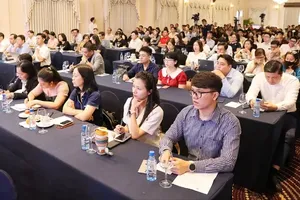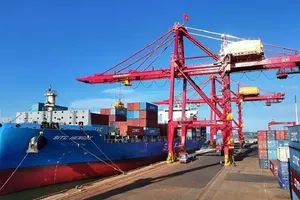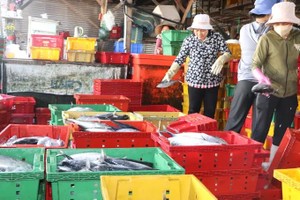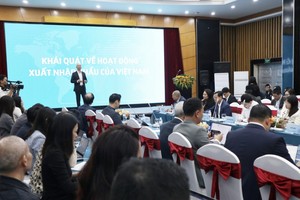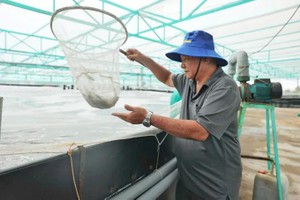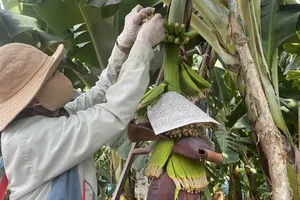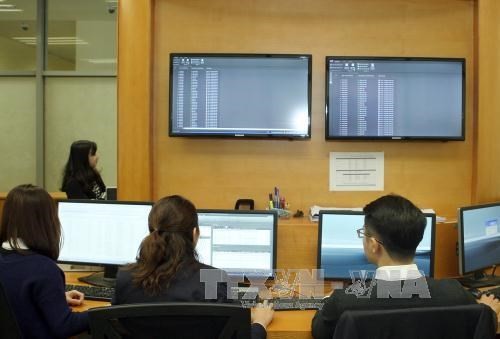
Specifically, they bought over VND38.7 trillion (US$1.66 billion) worth of shares and fund certificates, and nearly VND1.8 trillion (US$77.4 million) worth of bonds.
The derivatives market has become more attractive to the investors as total derivatives transactions hit a record high of nearly 1.99 million contracts valued at VND193.37 trillion (US$8.31 billion) in June.
Earlier, SSC Chairman Tran Van Dung said that foreign capital has flown to potential addresses, adding that foreign investors made purchases at initial public offering sessions of several State-owned enterprises at the end of 2018 and early 2018 such as Binh Son Refining and Petrochemical Company (BRS), Vietnam Oil Corporation (PV Oil), and PetroVietnam Power Corporation (PV Power), as well as bought shares of some newly-listed firms, for example Vinhomes, Techcombank and Vincom Retail.
According to him, in recent time, foreign investors have been the net sellers in the stock market; however, they continue to be net buyers in the bond market.
Dung recommended keeping close watch on the US Federal Reserve’s interest rate and trade tension as they are two important factors affecting foreign capital inflow to Vietnam.
The Vietnamese stock market still holds its appeal, especially to foreign investors, thanks to an economic growth projected at 6.5 percent during 2018-2020, coupled with the Government’s commitment to remove bottlenecks in investment, support private sector, and equitise State-owned enterprises, as well as the listing of many major companies.
Vietnam is holding more advantages compared to regional and emerging markets, and it has seen an increasing capital flow from Japan and the Republic of Korea, and more recently from Thailand and Malaysia.
“Along with stable and rational economic policies, Vietnam should provide sufficient and accurate information on the market developments, including macro-economy and operation of listed firms, so as to win confidence from the investors”, Dung noted.
The derivatives market has become more attractive to the investors as total derivatives transactions hit a record high of nearly 1.99 million contracts valued at VND193.37 trillion (US$8.31 billion) in June.
Earlier, SSC Chairman Tran Van Dung said that foreign capital has flown to potential addresses, adding that foreign investors made purchases at initial public offering sessions of several State-owned enterprises at the end of 2018 and early 2018 such as Binh Son Refining and Petrochemical Company (BRS), Vietnam Oil Corporation (PV Oil), and PetroVietnam Power Corporation (PV Power), as well as bought shares of some newly-listed firms, for example Vinhomes, Techcombank and Vincom Retail.
According to him, in recent time, foreign investors have been the net sellers in the stock market; however, they continue to be net buyers in the bond market.
Dung recommended keeping close watch on the US Federal Reserve’s interest rate and trade tension as they are two important factors affecting foreign capital inflow to Vietnam.
The Vietnamese stock market still holds its appeal, especially to foreign investors, thanks to an economic growth projected at 6.5 percent during 2018-2020, coupled with the Government’s commitment to remove bottlenecks in investment, support private sector, and equitise State-owned enterprises, as well as the listing of many major companies.
Vietnam is holding more advantages compared to regional and emerging markets, and it has seen an increasing capital flow from Japan and the Republic of Korea, and more recently from Thailand and Malaysia.
“Along with stable and rational economic policies, Vietnam should provide sufficient and accurate information on the market developments, including macro-economy and operation of listed firms, so as to win confidence from the investors”, Dung noted.


